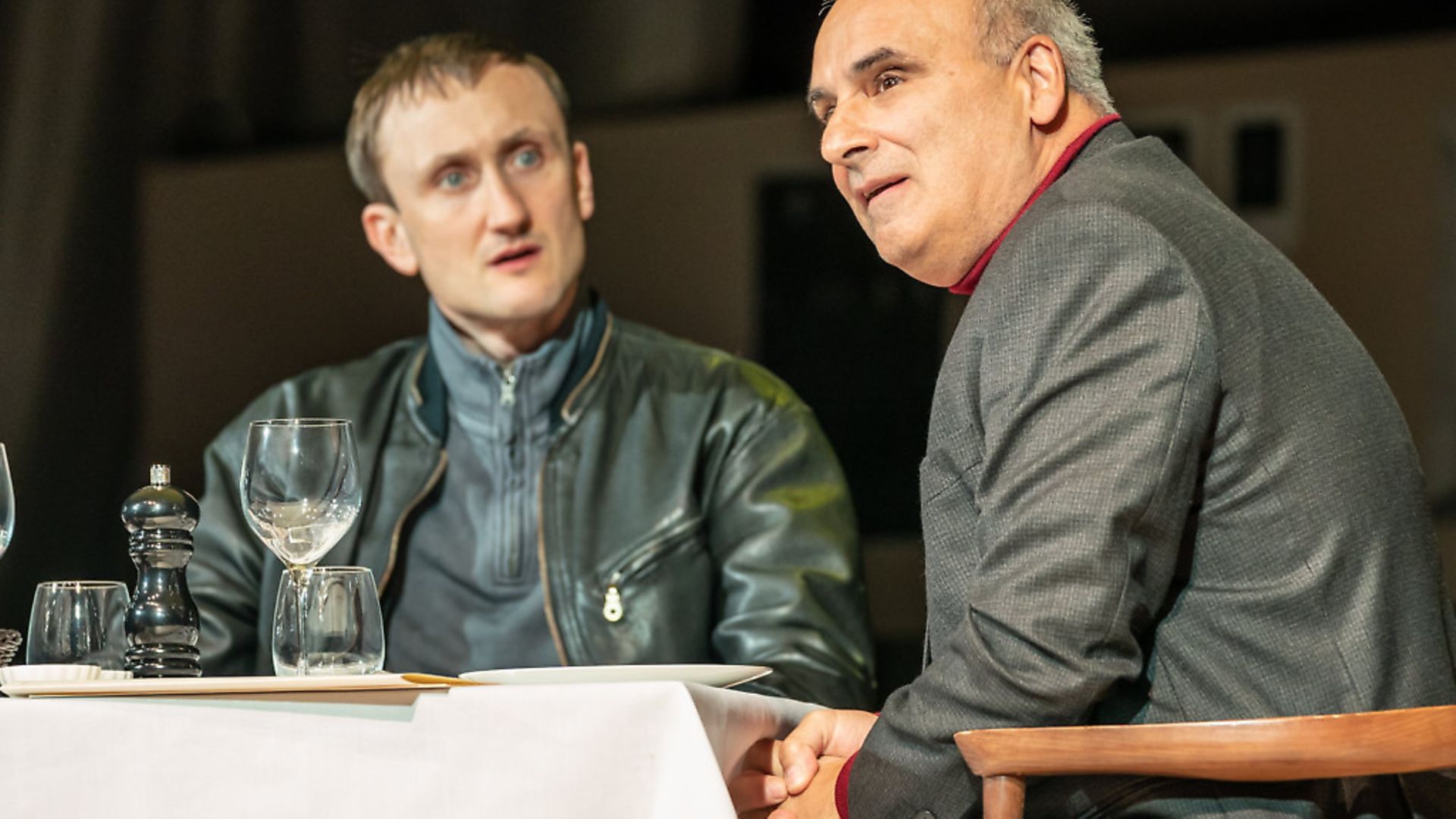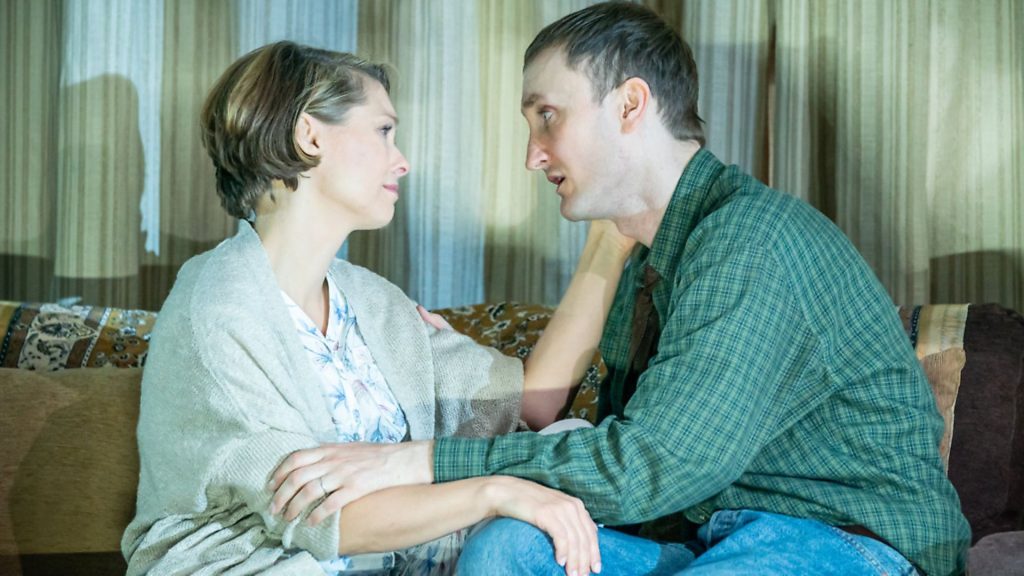
‘A Very Expensive Poison’ is about as guttural and stereotypical as six straight shots of vodka, writes TIM WALKER

With colour- and even gender-blind casting now commonplace in the world of the theatre, I’m not sure if actors doing funny foreign voices isn’t anachronistic, if not actually offensive.
As Alexander Litvinenko’s wife Marina in A Very Expensive Poison, the Swede MyAnna Buring gives her Russian voice everything she’s got: it’s gruff and guttural and about as unsubtly stereotypical as six straight shots of vodka and a shout of “za zdorovie!”
The problem is a lot of her fellow actors have made the decision to talk as they do normally, not least Alexander, who is played by Englishman Tom Brooke, who sounds, and indeed looks, very much like Rodney Trotter from Only Fools and Horses. This makes Miss Buring’s performance stick out like a sore thumb.
The so-called ‘fourth wall’ is also routinely broken by the actors as they attempt to do the job of Basil Exposition in the Austin Powers films: telling the audience directly stuff from the newspaper cuttings about the affair that a professional playwright would have managed to tell them dramatically.
Lucy Prebble’s play is a jarring and rather annoying piece of theatre: she has taken a flippant, larky approach to the poisoning on British soil of Litvinenko with polonium-210 by Russian agents. There are dance routines, outsize puppets of Putin, Gorbachev and Yeltsin, a towering golden phallus (yes, honestly) and Reece Shearsmith, supposedly playing Putin, trolling the actors from his box, but, for all these high jinx, it is not remotely funny.
I’ve a hunch Prebble and her director John Crowley were inspired by Armando Iannucci’s film The Death of Stalin and got it into their heads that anything at all to do with Russia should be given the Carry On… treatment. Doubtless if they ever staged a Chekhov or a Tolstoy, they would somehow manage to find roles for Jo Brand and Peter Kay with the inevitable cod accents and some kind of role for a phallus.
The Litvinenko story is a fascinating one, but this misguided piece adds nothing at all to what is already known and makes no attempt to draw any intelligent conclusions from what happened. Theatre at its best takes a real story and makes us see it differently or at least care about it.
In the key role of Litvinenko, Brooke delivers a bland, painting-by-numbers performance that means that, when he finally ends up on his death bed, one feels no emotional involvement whatsoever.
I might add that I happen to think the Russian state is the most insidiously evil force in the world today, but that doesn’t mean I feel at all comfortable with the kind of casual racism against the Russian people that runs through this whole piece. This is profoundly silly, unenlightening and mind-numbingly boring theatre. Ultimately I have to say someone who dies a hideously long and painful death is simply not a fit and proper subject for farce.










